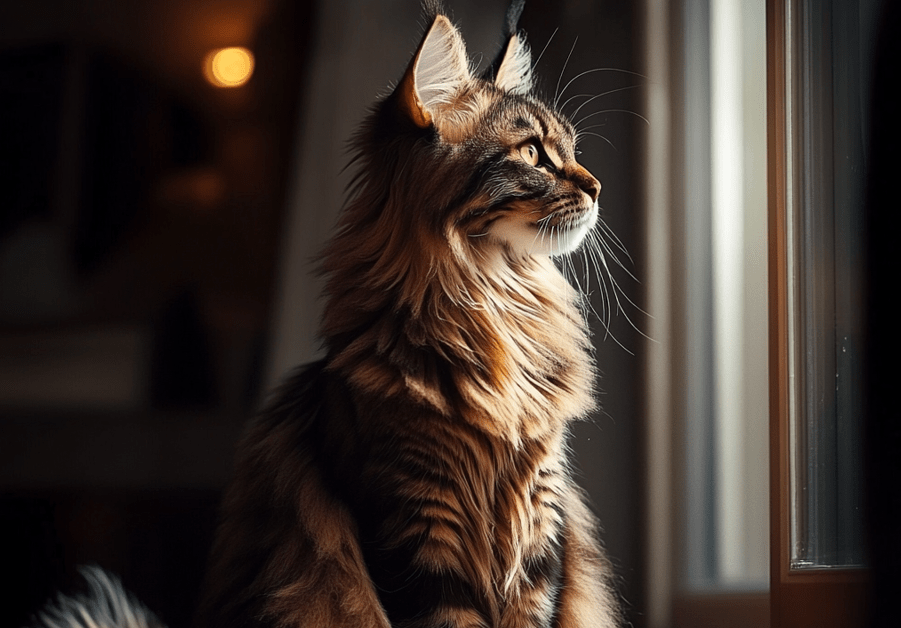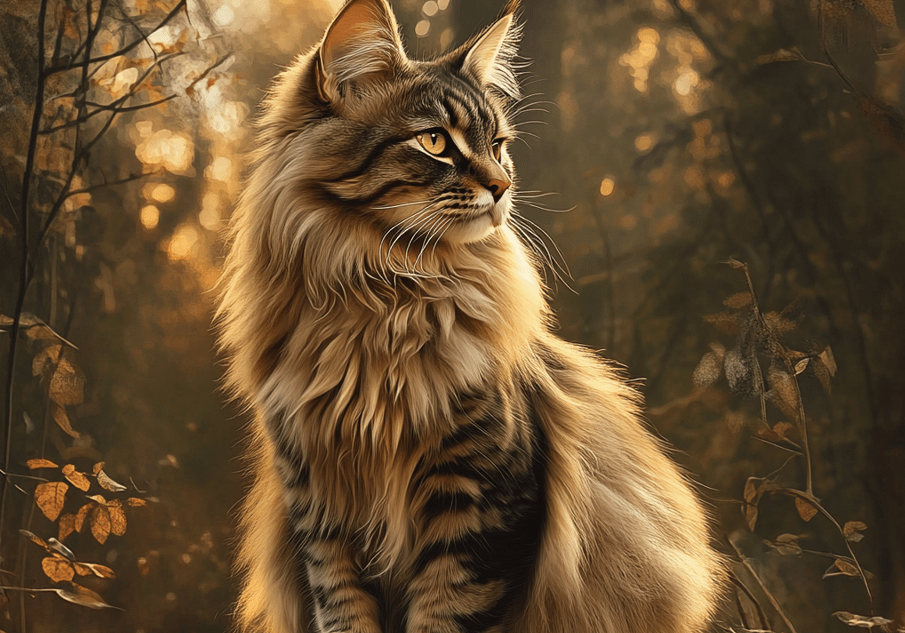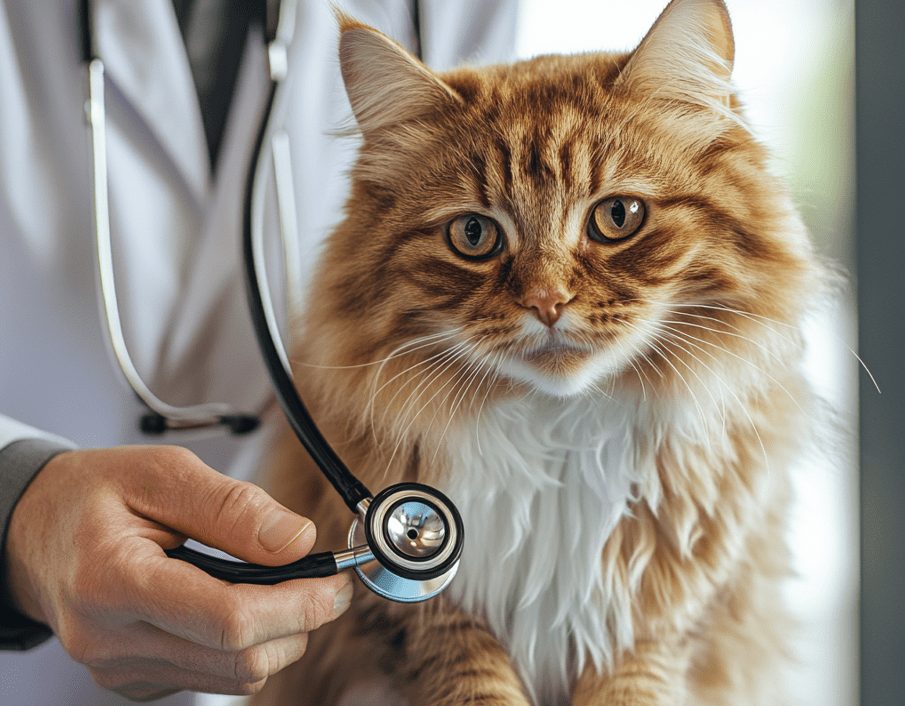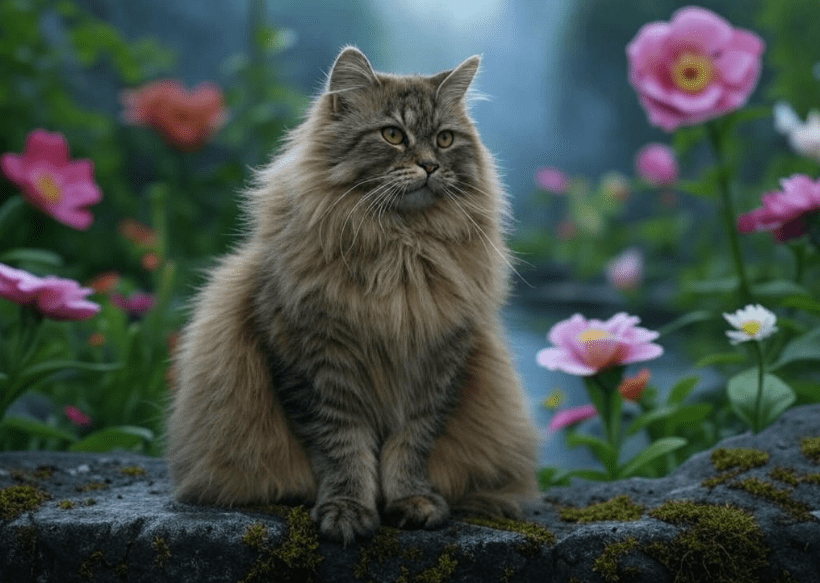
Maine Coon cats, often called “gentle giants,” are one of the largest domesticated cat breeds, renowned for their sociable nature, tufted ears, and luxurious coats. Creating a Maine Coon-friendly home environment is essential to ensure these majestic felines thrive. Their size, playful demeanor, and unique needs require specific accommodations to keep them happy, healthy, and safe. This comprehensive guide provides actionable tips to design a home that caters to your Maine Coon’s physical, mental, and emotional well-being, making it the ultimate resource for Maine Coon owners.
Why Maine Coons Need a Tailored Home Environment
Maine Coons are distinct from other cat breeds due to their large size, high energy, and dog-like personalities. Males typically weigh 13–18 pounds, while females range from 8–12 pounds, with some reaching up to 20 pounds. Their playful, intelligent nature and love for interaction mean they require more space, stimulation, and safety considerations than smaller, less active cats. A Maine Coon-friendly home environment supports their physical health, encourages natural behaviors like climbing and hunting, and prevents stress or boredom.
Key Needs of Maine Coons
Space to Roam: Their large size demands ample room to move, stretch, and explore.
Mental Stimulation: Maine Coons are highly intelligent and need activities to stay engaged.
Physical Activity: They require opportunities to climb, jump, and play to maintain a healthy weight.
Safety: Their curiosity can lead to mischief, so a secure environment is crucial.
Comfort: Cozy spots for resting and grooming are essential for their well-being.
By addressing these needs, you can create a home that feels like a paradise for your Maine Coon.
Designing a Maine Coon-Friendly Home: Key Elements
Creating a Maine Coon-friendly home environment involves thoughtful planning and adjustments. Below are the essential components to consider, each tailored to the unique characteristics of this breed.
1. Provide Ample Vertical Space
Maine Coons love to climb and perch, using their strong bodies to survey their surroundings from high vantage points. Vertical space not only satisfies their instincts but also saves floor space in smaller homes.
Cat Trees: Invest in sturdy, tall cat trees (at least 5–6 feet) with wide platforms to support their weight. Look for models with sisal scratching posts to encourage claw maintenance.
Wall Shelves: Install cat-safe wall shelves or perches to create a “cat highway” for exploration. Ensure they’re securely anchored to hold a Maine Coon’s weight.
Window Perches: Maine Coons enjoy watching the outdoors. Place window perches or hammocks near sunny windows for bird-watching and lounging.
Tip: Space platforms at varying heights to encourage jumping, which promotes exercise and prevents obesity.
2. Create Safe and Spacious Play Areas
Maine Coons are playful and need room to run, chase, and wrestle. Designate play zones that are free of hazards and equipped with engaging toys.
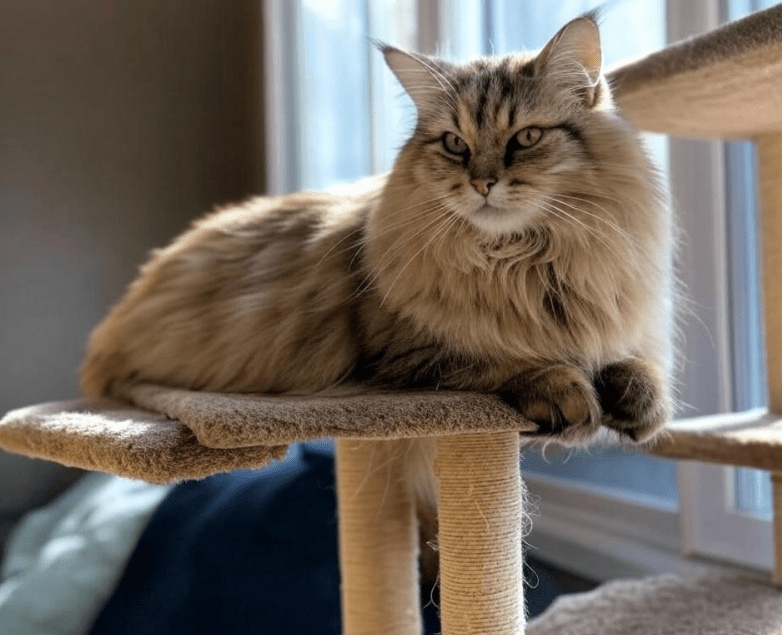
Interactive Toys: Feather wands, laser pointers, and motorized toys mimic prey, satisfying their hunting instincts. Rotate toys weekly to maintain interest.
Puzzle Feeders: These encourage mental stimulation and slow down eating, aiding in weight management.
Open Spaces: Clear areas of breakable items or sharp edges where your Maine Coon can zoom around safely.
Safety Tip: Secure heavy furniture to walls to prevent tipping if your Maine Coon climbs or jumps on it.
3. Ensure Comfortable Resting Spots
Despite their active nature, Maine Coons love to lounge. Provide cozy, oversized resting areas to accommodate their large frames.
Large Cat Beds: Choose beds with a diameter of at least 20 inches to allow stretching. Memory foam or heated beds are great for older Maine Coons with joint issues.
Blankets and Mats: Place soft blankets in quiet corners or on furniture where your Maine Coon likes to nap.
Cooling Mats: In warmer climates, cooling mats help regulate body temperature, especially for their thick coats.
Tip: Maine Coons often prefer sleeping in elevated spots, so consider placing beds on sturdy shelves or cat trees.
4. Optimize Litter Box Setup
Maine Coons require larger litter boxes due to their size. A cramped or poorly placed box can lead to stress or accidents.
Size Matters: Choose a litter box at least 1.5 times the length of your Maine Coon (about 24–30 inches long). Jumbo or extra-large boxes work best.
Multiple Boxes: In multi-cat households or large homes, provide one box per cat plus an extra, placed in different areas.
Low-Entry Options: For senior Maine Coons or those with mobility issues, use boxes with low sides for easy access.
Location: Place boxes in quiet, accessible areas away from food and water bowls. Maine Coons value privacy.
Maintenance Tip: Scoop daily and use clumping, unscented litter to keep the box inviting.
5. Provide Fresh Water and Proper Feeding Stations
Hydration and nutrition are critical for Maine Coons, who are prone to urinary issues and obesity if not managed properly.
Water Fountains: Maine Coons are drawn to running water. A pet water fountain encourages drinking, supporting kidney and urinary health.
Elevated Bowls: Raised food and water bowls reduce strain on their necks and promote better digestion. Ensure bowls are wide and shallow to avoid whisker fatigue.
Separate Feeding Areas: In multi-pet homes, feed Maine Coons separately to prevent food stealing and ensure portion control.
Tip: Clean bowls daily and refresh water frequently to maintain hygiene.
6. Enhance Mental Stimulation
Maine Coons are intelligent and curious, requiring mental enrichment to prevent boredom, which can lead to destructive behavior.
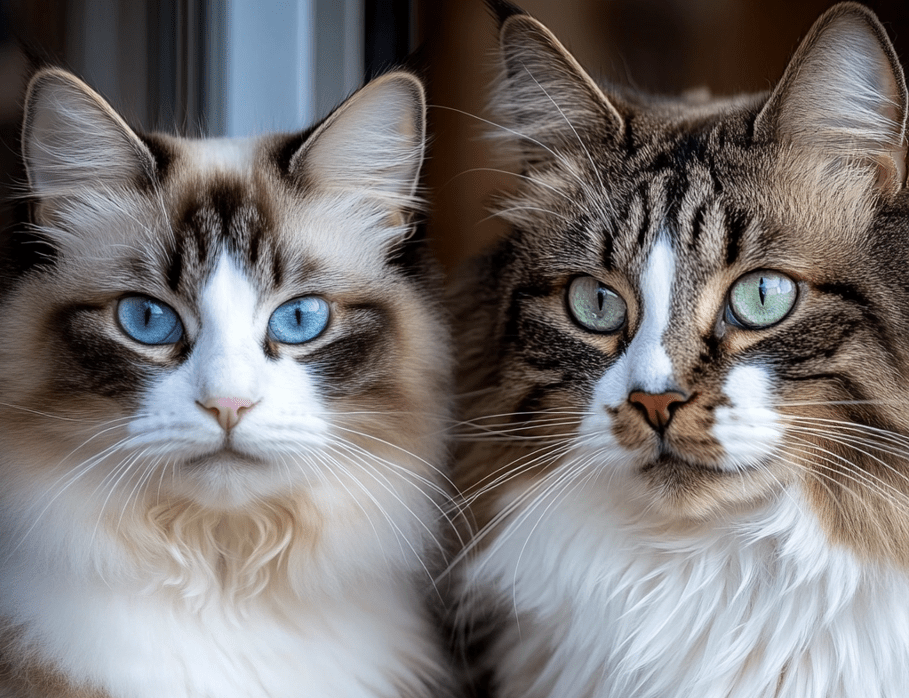
Puzzle Toys: Food-dispensing toys or treat puzzles challenge their problem-solving skills.
Training: Maine Coons are trainable and enjoy learning tricks like “sit” or “fetch.” Use positive reinforcement with treats or praise.
Rotating Environments: Rearrange toys, add new scratching posts, or introduce cardboard boxes to keep their environment fresh.
Tip: Spend 15–30 minutes daily interacting with your Maine Coon to strengthen your bond and provide mental stimulation.
7. Cat-Proof Your Home for Safety
Maine Coons’ curiosity can lead them into trouble. Cat-proofing ensures they stay safe while exploring.
Secure Cords and Cables: Use cord covers or tape to prevent chewing, which can cause electrical shocks.
Hide Toxic Plants: Common houseplants like lilies, pothos, and aloe are toxic to cats. Opt for cat-safe plants like catnip or spider plants.
Lock Cabinets: Maine Coons can open doors or cabinets. Use childproof locks to keep them away from cleaning supplies or medications.
Check Windows and Balconies: Install secure screens on windows and netting on balconies to prevent falls, as Maine Coons love high perches.
Tip: Regularly inspect your home for small objects (e.g., rubber bands, string) that could be swallowed.
8. Grooming and Coat Care Stations
Maine Coons have long, water-repellent coats that require regular grooming to prevent matting and hairballs.
Grooming Area: Set up a dedicated space with a non-slip mat, a high-quality brush, and nail clippers. Groom 2–3 times weekly.
Scratching Posts: Provide multiple sisal or cardboard scratching posts to maintain claw health and prevent furniture damage.
Hairball Prevention: Use hairball-control treats or add a small amount of pet-safe oil to their diet (consult your vet first).
Tip: Make grooming a positive experience with treats and praise to reduce stress.
9. Temperature and Climate Control
Maine Coons have thick coats suited for colder climates, but they can overheat in warm environments.
Cooling Areas: Provide cooling mats or shaded spots in summer. Avoid placing beds near radiators or direct sunlight.
Warmth in Winter: Ensure cozy beds or heated pads are available in colder months, especially for senior cats.
Ventilation: Maintain good air circulation to prevent respiratory issues, as Maine Coons can be sensitive to dust or stale air.
Tip: Monitor your Maine Coon for signs of overheating, such as excessive panting, and consult a vet if concerns arise.
10. Foster Social Interaction
Maine Coons are highly social and thrive on interaction with humans and other pets.
Quality Time: Spend time playing, cuddling, or talking to your Maine Coon, as they often “talk” back with chirps and trills.
Pet Companions: Maine Coons generally get along with other cats or cat-friendly dogs, provided introductions are gradual.
Safe Spaces: Create quiet retreat areas where your Maine Coon can relax if overwhelmed by guests or other pets.
Tip: If you’re away often, consider a pet camera to monitor your Maine Coon and interact remotely.
Special Considerations for Maine Coon-Friendly Homes
For Senior Maine Coons
Older Maine Coons may develop arthritis or hip dysplasia, requiring additional accommodations.
Ramps or Steps: Provide ramps to access favorite perches or beds, reducing joint strain.
Orthopedic Beds: Memory foam beds support aging joints.
Frequent Vet Checks: Regular exams catch age-related issues early, ensuring your home remains suitable.
For Multi-Cat Households
Maine Coons are social but can be territorial. Ensure each cat has their own resources (litter boxes, beds, scratching posts) to prevent conflicts.
For Small Spaces
If you live in an apartment, maximize vertical space with wall shelves and compact cat trees. Use multi-functional furniture, like ottomans with built-in scratching posts, to save room.
Common Mistakes to Avoid
Underestimating Size Needs: Standard cat furniture or litter boxes may be too small for Maine Coons.
Neglecting Safety: Failing to cat-proof can lead to accidents or injuries.
Overlooking Enrichment: Without mental and physical stimulation, Maine Coons may become bored or stressed.
Ignoring Grooming: Skipping regular grooming can lead to matting or health issues.
Conclusion
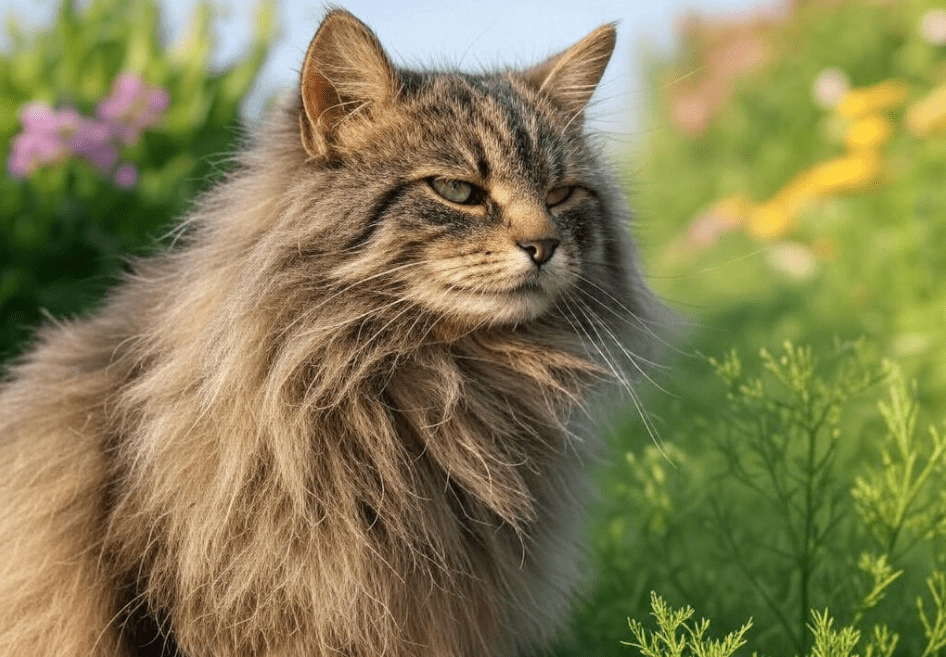
Creating a Maine Coon-friendly home environment is a rewarding endeavor that enhances your cat’s health, happiness, and longevity. By providing ample space, engaging toys, safe surroundings, and opportunities for interaction, you can cater to the unique needs of this extraordinary breed. Whether you’re a new Maine Coon owner or looking to improve your home, these tips will help you build a sanctuary your gentle giant will love.
For personalized advice, consult a veterinarian or feline behaviorist. Start transforming your home today to give your Maine Coon the environment they deserve!

